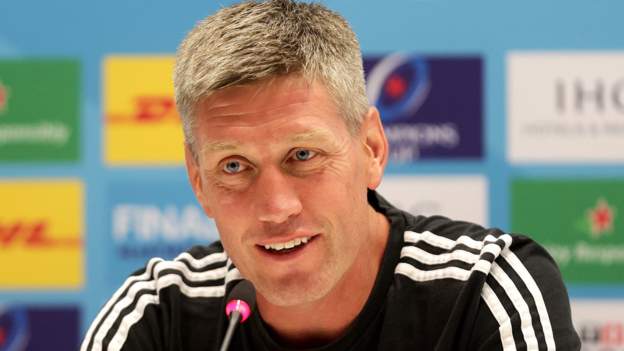I'm putting this here because it deals with passed, current and future coaching chat.
Ben Darwin has been saying recently, judging coach success purely on wins and losses isn't accurate, because it doesn't take in to account games expected to win and lose. Ben's team obviously has a lot more detailed data here around team make ups and cohesion etc, but I've had a go at coming up with my own (somewhat limited) method.
It's based on World Rugby Ranking Points (the actual points, not the rank) including taking into account their home v away weighting (home team gets an extra 3 points), you could go back to when the ratings started (RWC2003 albeit based on results through the history of the game) you can start developing a different perspective on success.
For instance, when we played Ireland in that RWC, we had a "Pre Match Rating" of 84.76 and Ireland had 84.95. If you give us the home ground rating we go to 87.76 and we become favorites. We actually won the game so that is an "Expected Win".
Two games later, we played NZL. We had a PMR of 89.20 (with home ground weighting) and they had 90.41, so NZL were expected to win. We obviously won - so that's an "Unexpected Win" or an "Upset".
In the final game of the tournament we played Eng and we had a PMR of 91.44 (weighted) v ENG's 92.13. So they were favorites, they won and it was an "Expected Loss". You get the idea.
Apply that against all games played and we can see how each of our coaches have gone since the rankings were first published.
For instance Eddie, from that first RWC game onwards, had 32 games. 21 of those games we were 'expected to win' yet we only one 16 (76.19% Favorites Win Rate). 11 of those games we were expected to lose, yet we won 4 (36.36% Upset Rate).
All up, in the games Eddie coached in this period, he was expected to win 65.63% of them. In reality he only won 62.5% of his games so is overall sits at -3.13% Performance Success Rate (For want of a better term).
@Braveheart81 may be interested to note how I deal with draws. If Australia was expected to lose, but snagged a draw I declared that an Upset. If Australia was expected to win, but drew, then I declared that a 'loss'.
So to compare against coaches:
"Favorites Win Rate"
1st John Connolly @ 88.24% (won 15 of the 17 games he was expected to win)
2nd Ewen McKenzie @ 84.62
3rd Eddie Jones @ 76.19%
4th Michael Cheika @ 75%
5th Robbie Deans @ 74.36%
6th Dave Rennie @ 40%
"Upset Rate"
1st Robbie Deans @ 47.06% (won 16 of the 34 games he was expected to lose)
2nd Dave Rennie @ 36.84%
3rd Eddie Jones @ 36.36%
4th Michael Cheika @ 25%
5th John Connolly @ 12.50%
6th Ewen McKenzie @ 11.11%
Performance Success Rate
1st Robbie Deans 8.22% (was expected to win 54.42% of games, actually won 61.64%)
2nd Michael Cheika -1.47%
3rd Eddie Jones -3.13%
4th John Connolly -4%
5th Ewen McKenzie -4.55%
6th Dave Rennie -5.88%
This of course makes the usual assumption that my stats are accurate.
Some observations:
- Robbie Deans remains underrated for his success as a Wallaby coach. His ability to deliver upsets was exceptional.
- Rennie has just had his best year with the Wallabies, which isn't hard but does show improvement. He only lost 1 game that he was expected to win (Italy) and actually managed to win 4 games he wasn't expected to win.
Ok for fun, Top 5 upsets by us (ranked by biggest rating point differential)
1 v SAF (2021) with a differential of 9.38 (85.11 v 94.49)
2 v NZL (2010) = 9.21
3 v NZL (2007) = 7.25
4 v NZL (2017) = 6.93
4 v NZL (2019) = 6.62
And, not so fun, Top 5 upsets against us
1 v SCO (2012) with a differential of 17.13 (90.99 v 73.86)
2 v SAM (2011) = 16.56
3 v ARG (2018) = 10.42
4 v IRE (2011) = 10.34
5 v ARG (2014) = 10.09


